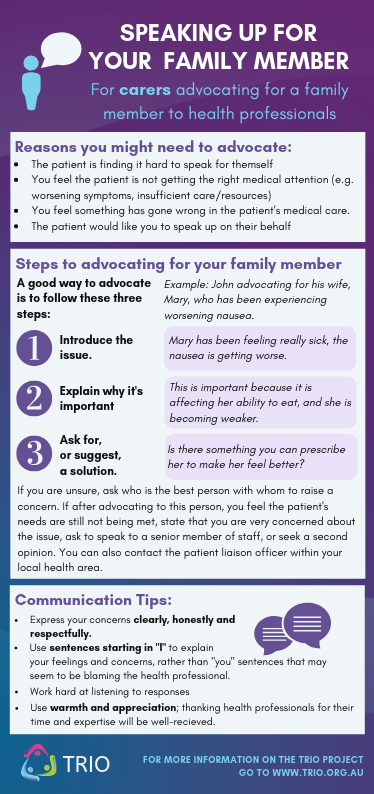Part 8: Advocating for the patient
3 out of 7More tips on speaking up for the patient
- Communicate with health professionals assertively (clearly, honestly and respectfully), such as:
- Express your concerns clearly and honestly to the clinician.
- Use “I” language to explain what is upsetting you and what you would like e.g. “When this happens. I feel. I would like.”
- Avoid using “you” statements, which may come across as blaming the other person.
- For example, you could say, “I feel that my mother needs more help managing the side effects from the radiation therapy”, rather than “You aren’t doing enough to help my mother manage radiation side effect”.
- Remain respectful of the clinician and try to listen and understand their views.
- When advocating, use warmth and appreciation to connect with the health professional. Be mindful of your tone and non-verbal body language.
- Simply thanking the health professional for their time and expertise can go a long way to showing your gratitude and respect.
The TRIO research team has developed a short pamphlet summarising the steps and tips for advocating for your family member. If you would like to download this, click on the icon below
OVERALL COMPLETION



